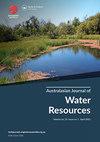新西兰奥特罗瓦的淡水管理:交易是水量分配的可行选择吗?
IF 2.2
Q2 WATER RESOURCES
引用次数: 2
摘要
水交易被认为是一种在环境限制下实现经济效益的有效机制。它代表了一种应用动态分配框架的可能性,在这个框架内,环境河流的流动可以得到监测和改善,以支持生态、文化、美学和娱乐价值。根据国际经验,在奥特阿瓦-新西兰的背景下评估了成功实施水交易的要求。结论是,如果环境被认为是水的使用者,水交易有可能促进可持续用水,但与大量的设置和持续成本有关。在1840年的《提里提奥怀唐伊》的基础上,伊维族/哈伊族和王室尚未就水交易的共同治理政策框架达成一致。目前缺乏发展和执行贸易所需的体制能力,政府机构和iwi/ haki将发挥的作用也不清楚。与水文数据的收集、整理和交流有关的市场操作要求仅部分到位。最后,新西兰浮华的水文不利于季节性水交易,较小的集水区可能没有足够的用户来构成一个有效的市场。因此,水交易不应被视为改善淡水管理的一种容易实施的解决办法。本文章由计算机程序翻译,如有差异,请以英文原文为准。
Freshwater management in Aotearoa-New Zealand: is trading a viable option for water quantity allocation?
ABSTRACT Water trading has been proposed as an effective mechanism for delivering economic benefits within environmental limits. It represents one possibility for applying a dynamic allocation framework within which environmental river flows can be monitored and improved to support ecological, cultural, aesthetical and recreational values. Based on international experience, requirements for the successful implementation of water trading are assessed in the Aotearoa-New Zealand context. It is concluded that, if the environment is recognised as a water user, water trading has potential to promote sustainable water use but is associated with significant set-up and ongoing costs. A co-governance policy framework for water trading has not been agreed by iwi/hapū and the Crown based on Te Tiriti o Waitangi (1840). The institutional capacity required for development and implementation of trading is currently lacking, and the roles that government agencies and iwi/hapū would play are unclear. Market operational requirements relating to collection, collation and communication of hydrological data are only partially in place. Finally, New Zealand’s flashy hydrology is not conducive to seasonal water trading and smaller catchments may contain insufficient users to constitute a functioning market. Water trading should therefore not be viewed as an easily implementable solution for improved freshwater management.
求助全文
通过发布文献求助,成功后即可免费获取论文全文。
去求助
来源期刊

Australasian Journal of Water Resources
WATER RESOURCES-
CiteScore
5.10
自引率
21.90%
发文量
25
期刊介绍:
The Australasian Journal of Water Resources ( AJWR) is a multi-disciplinary regional journal dedicated to scholarship, professional practice and discussion on water resources planning, management and policy. Its primary geographic focus is on Australia, New Zealand and the Pacific Islands. Papers from outside this region will also be welcomed if they contribute to an understanding of water resources issues in the region. Such contributions could be due to innovations applicable to the Australasian water community, or where clear linkages between studies in other parts of the world are linked to important issues or water planning, management, development and policy challenges in Australasia. These could include papers on global issues where Australasian impacts are clearly identified.
 求助内容:
求助内容: 应助结果提醒方式:
应助结果提醒方式:


